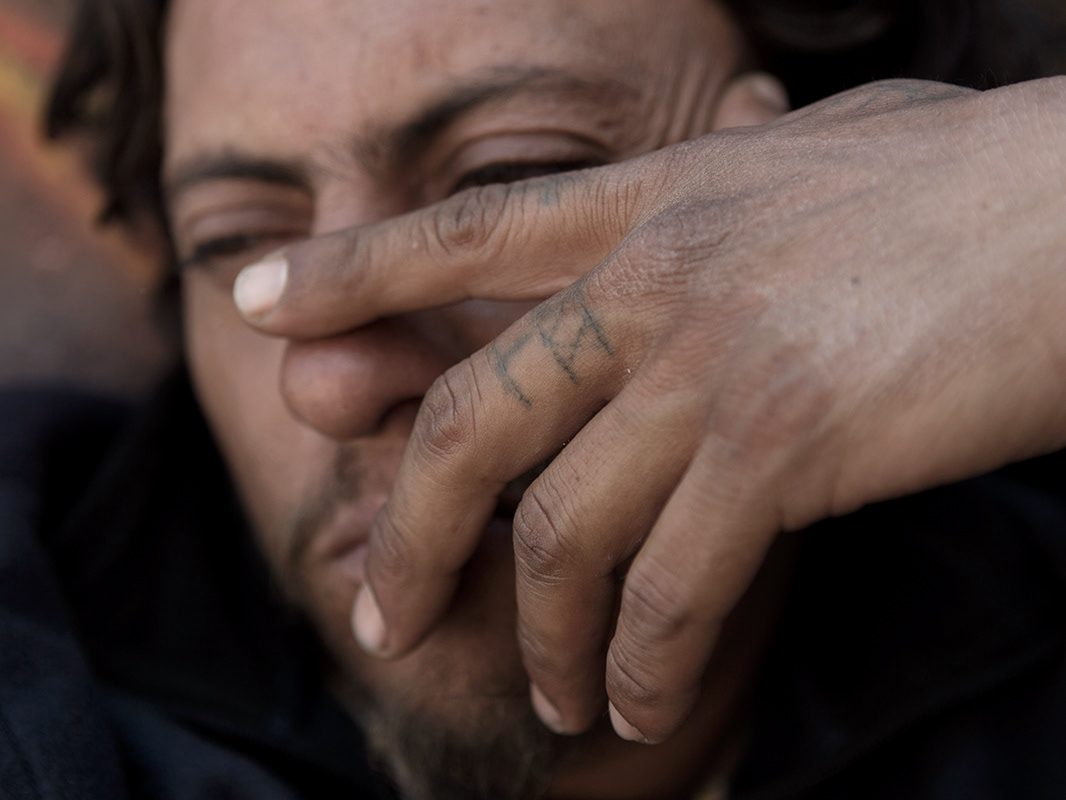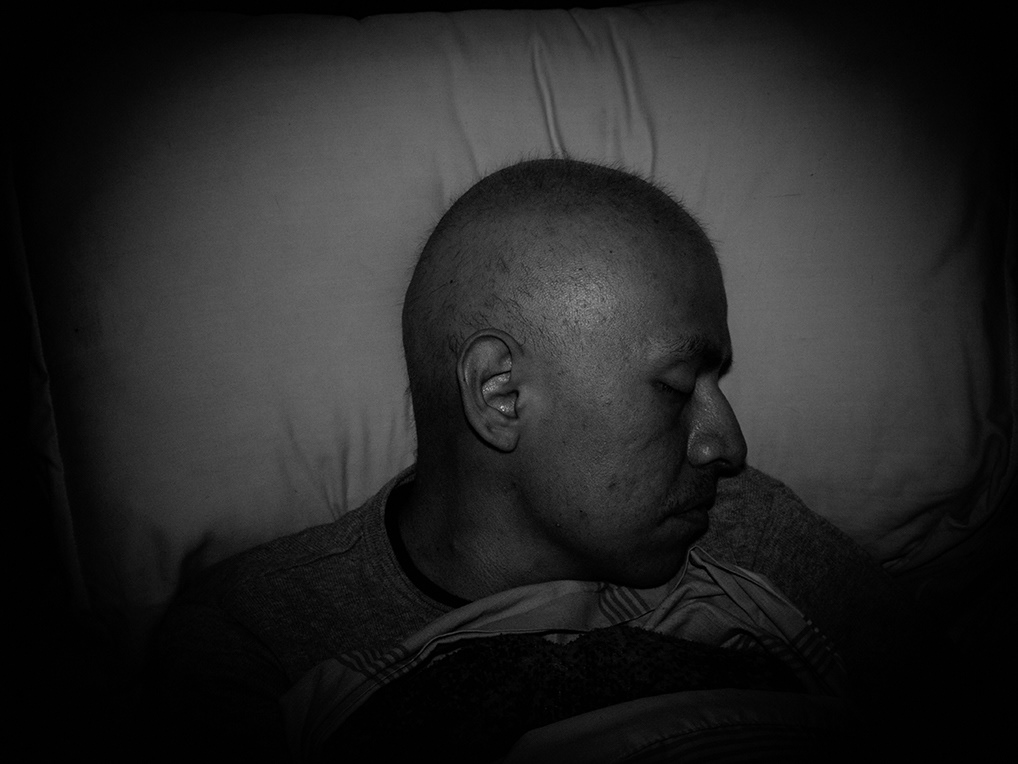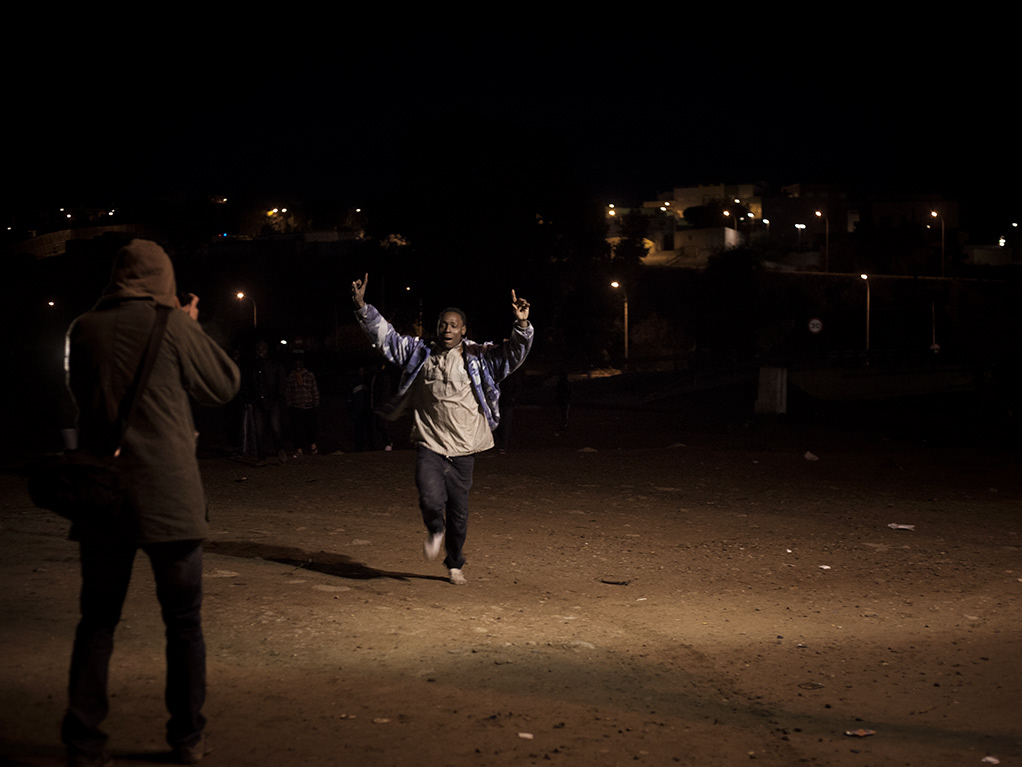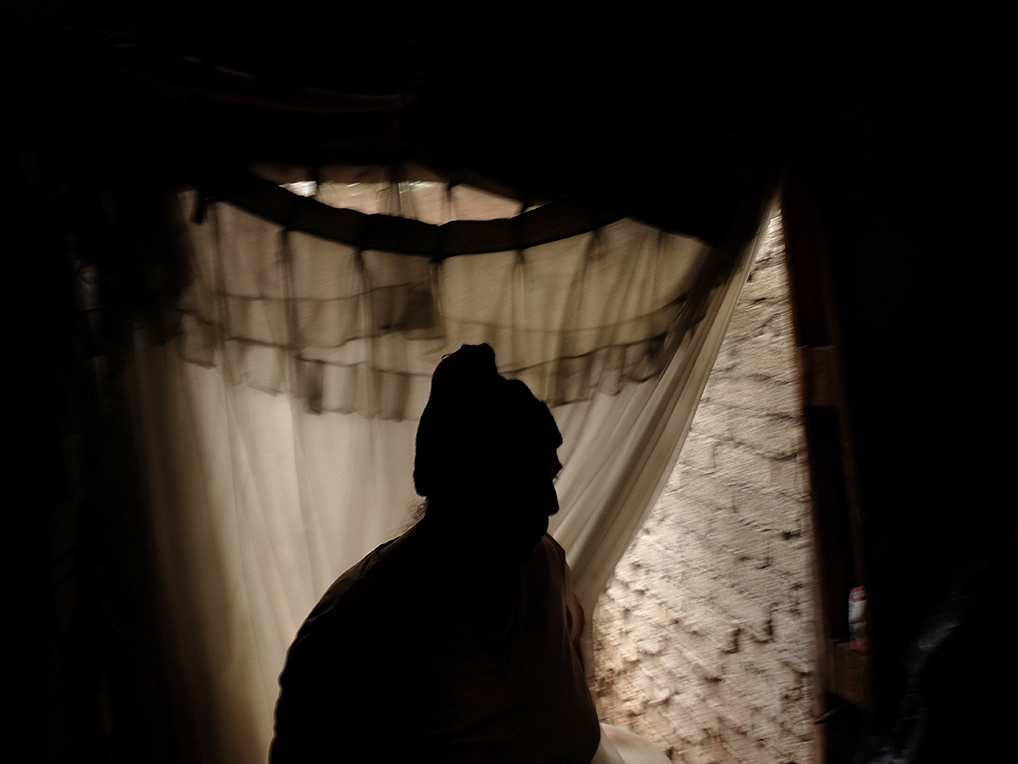La suerte no nos separará. / Fortune won't take us apart.
Recién llegado Vol. 1: Arañado por los asaltantes. / Newcomer Vol. 1: Scratched by the assailants
Mirada ante su historia. / Gaze towards his story
Siguiente parada. / Next Stop.
Peluquería. / Barbershop.
Un religioso se prostituía para poder mantenerse. / A preacher offered his sexual services to survive
Recién llegado Vol. 2: Rostro del miedo. / Newcomer Vol. 2: Face of fear.
Lo asaltaron en Guatemala, lo apuñalaron en la espalda, le quitaron su maleta y lo quisieron matar. Logró huir /
He was assaulted in Guatemala, stabbed in the back, they took away his bag and tried to kill him. He got to run away.
Mito Castillo se fue de Honduras porque mataron a sus dos hermanos y por la violencia. /
Mito Castillo left Honduras because his two brothers were murdered and because of the violence.
Lavacoches. / Carwash.
Experiencia. / Experience.
Madre bañaba a su hija. / A mother was bathing her child.
Pescados muertos y repertorio de crueldades. / Dead fish and repertoire of cruelties
Un jornalero en su casa. / Laborer at home.
El fraile franciscano Tomás González, quien recibe amenazas y hostigamientos por parte de las autoridades locales y federales, apoya a los migrantes ofreciéndoles camas, medicamentos y comidas. “Libres de violencia” es el mensaje que tiene para todos ellos. /
Grey Friar Tomas Gonzalez, receiver of threats and hostile treatments from the local and federal authorities, supports the immigrants offering them beds, medications and food. "Violence Free" is the message he has for all of them.
Tiempo de fumar. / Time for a smoke
La molestia de un recuerdo / The discomfort of a memory
Su idea de retratar a los migrantes surgió de la segregación y el acoso que ha experimentado por ser una persona con discapacidad auditiva que, contra el silencio, decidió rebelarse para poder dar luz y voz a los individuos desplazados que protagonizan sus capturas.
Con estas series fotográficas nos enfrenta a la dura realidad de la frontera sur en la que, por espacio de cinco temporadas, ha logrado establecer relaciones de confianza hasta llegar a ser conocido como el “Mexican Tattoo” que, con sus ojos de lince, se desliza sobre las escenas que se desarrollan en Tenosique, Tabasco, tierra de grandes contrastes en la que confluyen emigrantes —algunos huyendo de la persecución, otros, alejándose del hambre y de la pobreza— que terminan estableciéndose temporal o definitivamente allí y quienes, para subsistir, se ven forzados a ejercer actividades ilícitas, a dedicarse a la prostitución o, en el mejor de los casos, a prestar servicios en las calles o a elaborar productos artesanales.
Sus tomas son narraciones matizadas por episodios entrañables, metafóricos y escalofriantes. Él percibe a estos hombres y mujeres como si fueran peces que, impulsados por un falso anhelo de libertad, recorren grandes distancias para, finalmente, sucumbir ante un México cruel e indiferente que los devora bajo el amparo de la corrupción y la impunidad.
The idea to portrait immigrants emerged from the segregation and harassment that the artist experienced being a person with a hearing disability that, against silence, decided to reveal himself. In that way, he gives light and voice to the displaced people that are the main characters of his shoots.
With these photographical series, Urrutia confronts us to the hard reality of the southern border in which, for five seasons, he stablished trusting relationships to the point of being known as the “Mexican Tattoo” who, with his lynx gaze, slips through the scenes developed in Tenosique, Tabasco, land of great contrasts where immigrants converge —some of them running away from the persecution and some others, avoiding hunger and poverty— stablishing there temporary or in a definitely way to subsist, being forced to commit illegal activities, as prostitution or, in the best cases, providing services in the streets or making handmade products.
His shoots are narrations nuanced by endearing, metaphorical and horrifying episodes. He perceived these men and women as fishes propelled by a fake desire of freedom, traveling long distances to, lastly, fall down in a cruel and indifferent Mexico that devour them under the corruption and impunity.




